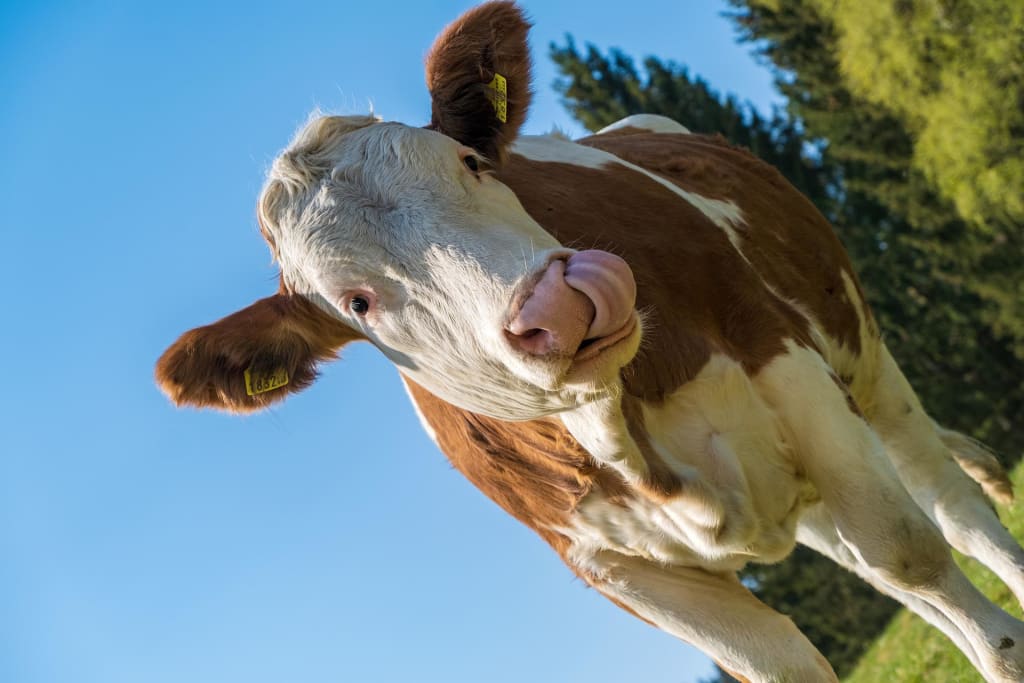We're Having Cow for Dinner
Why English has different words for animals and meats

When you hear the word chicken, do you think of the animal or the meat? Most likely, you rely on context to tell you which meaning of the word is being used.
On the other hand, if you order cow in a restaurant, the waiter may know what you’re talking about, but they might raise an eyebrow at your unusual word choice. Pork is another word that seems disconnected from the animal it comes from. Even deer meat is usually called venison instead of deer.
English isn’t unique in this. Many languages have different words for the animals and the meat that comes from them, but if you look deeper at the English words, you’ll start to notice an interesting trend.
Where did these different words come from?
Many of the English animal words have a different origin than their meat counterparts.
Chicken, cow, and pig all have their origins in Old and Middle English.
On the other hand, beef and pork both have their origins in Old French, not English. Despite English and French having different origins themselves (English is a Germanic language while French is a Romance one), English adopted French words for many meats.
Food words that come from French are relatively common in English of course. It’s not just meat. Many people recognize terms like au gratin and vinaigrette as French, but they may not immediately recognize beef as French because it was adopted by English so long ago.
So why did English begin using French names for meat but not the names for the animals themselves?
French’s relationship with English
With only the English Channel separating the two countries, France and England have a long history with each other. In the 11th century, Normans, who came from Normandy in modern-day France, invaded England. Their ruler, who came to be known as William the Conqueror, took control of the English throne.
With William in power, the old English aristocracy was replaced with a Norman one. This new Norman aristocratic class spoke Norman, a dialect of French, as their native language. Even once in England, many of them continued to speak French at home. Speaking French became a sign of being education even amongst the general population.
This has had a profound impact on English. Many of the French words that have been adopted into English did so because of the Norman Conquest.
It was the common people and servants who took care of the cows and pigs while they were alive, but the French-speaking aristocrats often ate beef and pork in their homes. The servants working for them learned these French words for the meats and eventually began to use those words themselves, making them part of the English language.
At the same time, the English speakers tending to the animals in the field or in the barn, away from the aristocrats, kept using the same words that they’d always used. While those words have also evolved over time, they never lost their English roots.





Comments
There are no comments for this story
Be the first to respond and start the conversation.